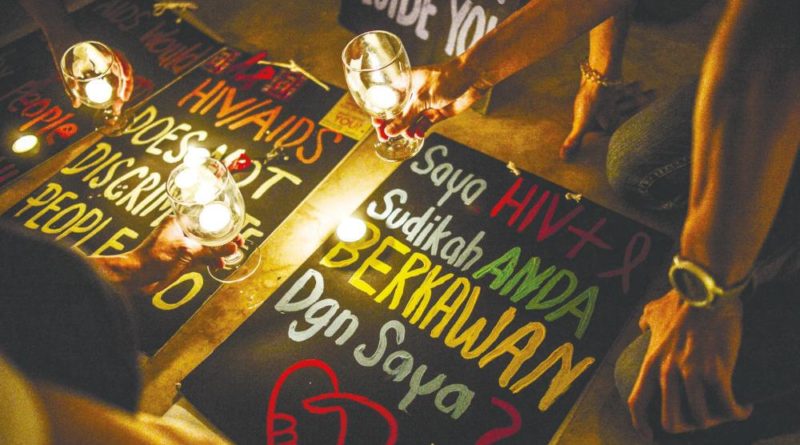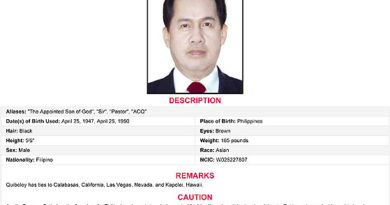OP-ED Opinion | Upholding human rights key to better public health

AS a trained HIV physician, it has been inspiring to witness the steady development of effective treatments for HIV.
The continual expansion of proven HIV-prevention tools has resulted in life-saving benefits for so many people.
However, it has also been heartbreaking to witness the obstruction of scientifically proven methods from reaching their full potential.
When I started my service in Malaysia in 1997, my HIV practice was overwhelmed with individuals who had contracted the virus through injecting drugs. This starkly contrasted with
my experience in Australia, where I received my medical education and training. While I saw many patients living with HIV, nearly none had acquired the virus through drug injection.
The reason quickly became clear. Australia treated drug use as a public health issue, offering harm reduction services that allowed people who used drugs to protect themselves from HIV.
In contrast, Malaysia adopted a punitive and highly stigmatising approach to drug use, preventing people who used drugs from accessing harm reduction services or protecting themselves from HIV.
Drug use is prevalent in Australia and Malaysia, but the contrasting human rights environments led to vastly different public health consequences. This experience had a profound impact on my professional career and my personal perspective.
The Hippocratic Oath taken by all physicians mandates that we focus on helping people who are sick, and that we do no harm by our actions or inactions.
I realised that improving health outcomes for my clients required more than just a biomedical approach; I also had to become a strong advocate for their human rights.
Providing HIV prevention and treatment services to individuals who inject drugs, including those in prisons and other closed settings, led me to become deeply involved in drug policy reform. It became clear that aligning drug policy with human rights principles is essential for advancing public health.
Some critics argued that implementing harm reduction services in our country would be impossible. However, after years of overcoming resistance, we successfully introduced the programme – and it worked.
Since its implementation, needle-sharing has ceased to be the primary mode of HIV transmission in Malaysia, preventing thousands of new infections.
Some critics claimed harm reduction would be too expensive, yet it ended up saving the country significant amounts of money. The global HIV response has shown that, as health workers, we cannot leave the responsibility of advocating for human rights to others.
Human rights violations are keeping our scientifically proven tools from being effective. Too many people are still being denied life-saving care simply because they belong to communities whose rights are being violated.
Many individuals who seek treatment for HIV at a late stage report that they delayed care out of fear of being ostracised, losing their jobs or facing mistreatment.
When we fail to address discrimination, HIV wins and humanity loses. The evidence is clear: without protecting everyone’s human rights, we will not be able to end AIDS as a public health threat.
In recognition of this, the International AIDS Society-Lancet Commission on Health and Human Rights, which I co-chaired, issued a recommendation urging that “practitioners and stakeholders across the health field ensure that all aspects of their work reflect and promote a commitment to human rights”.
To protect public health by safeguarding human rights, the commission further recommended that those working in the health field collaborate with other sectors and communities, including human rights organisations, scientists and advocates focused on issues like climate justice, women’s rights, LGBTQ+ rights, and racial and migrant justice.
We are at a critical juncture where human rights are under attack worldwide. Those attempting to strip away human rights often claim to be defending religious values but these claims are false.
…
I believe that protecting everyone’s health by safeguarding their human rights honours Islamic teachings, fulfils its commitment to compassion and prioritises the preservation of life.
Upholding human rights means recognising the inherent value of every individual’s life and understanding
that our societies are stronger when everyone is treated with respect, dignity and inclusion.
Similarly, protecting public health requires ensuring that no one is left behind, recognising that none of us is truly safe until all of us are.
It is not for us to judge others but to take care of each other. Human rights belong to everyone, and upholding them is essential for allowing us all to be healthy and to thrive.
…
Prof Datuk Dr Adeeba Kamarulzaman is chairman of the Malaysian AIDS Foundation, professor of Medicine and Infectious Diseases and pro vice chancellor and president of
Monash University, Malaysia, and former president of the
International AIDS Society.
Comments: [email protected]


 Memento Maxima Digital Marketing
Memento Maxima Digital Marketing THE EDITOR
THE EDITOR







